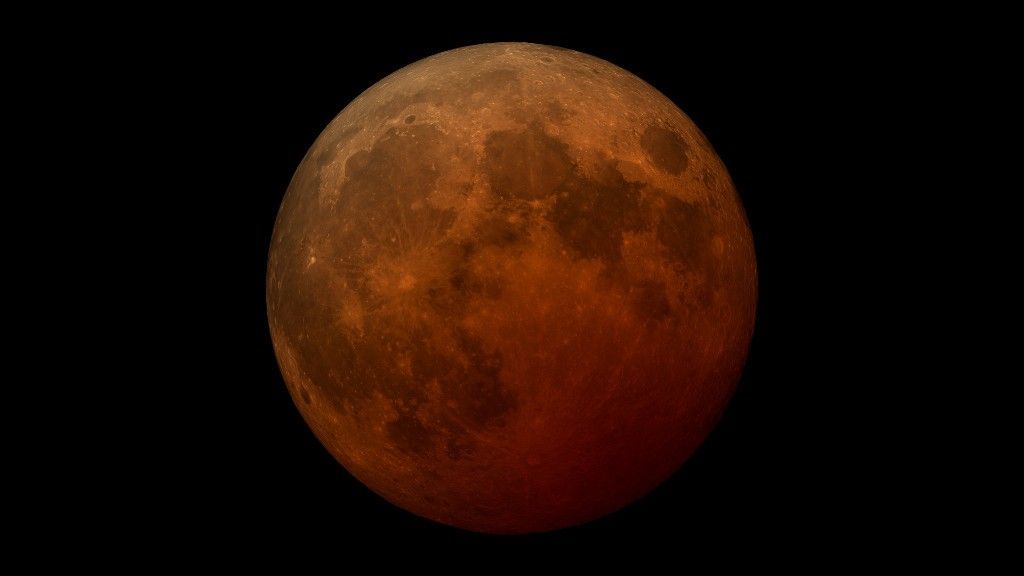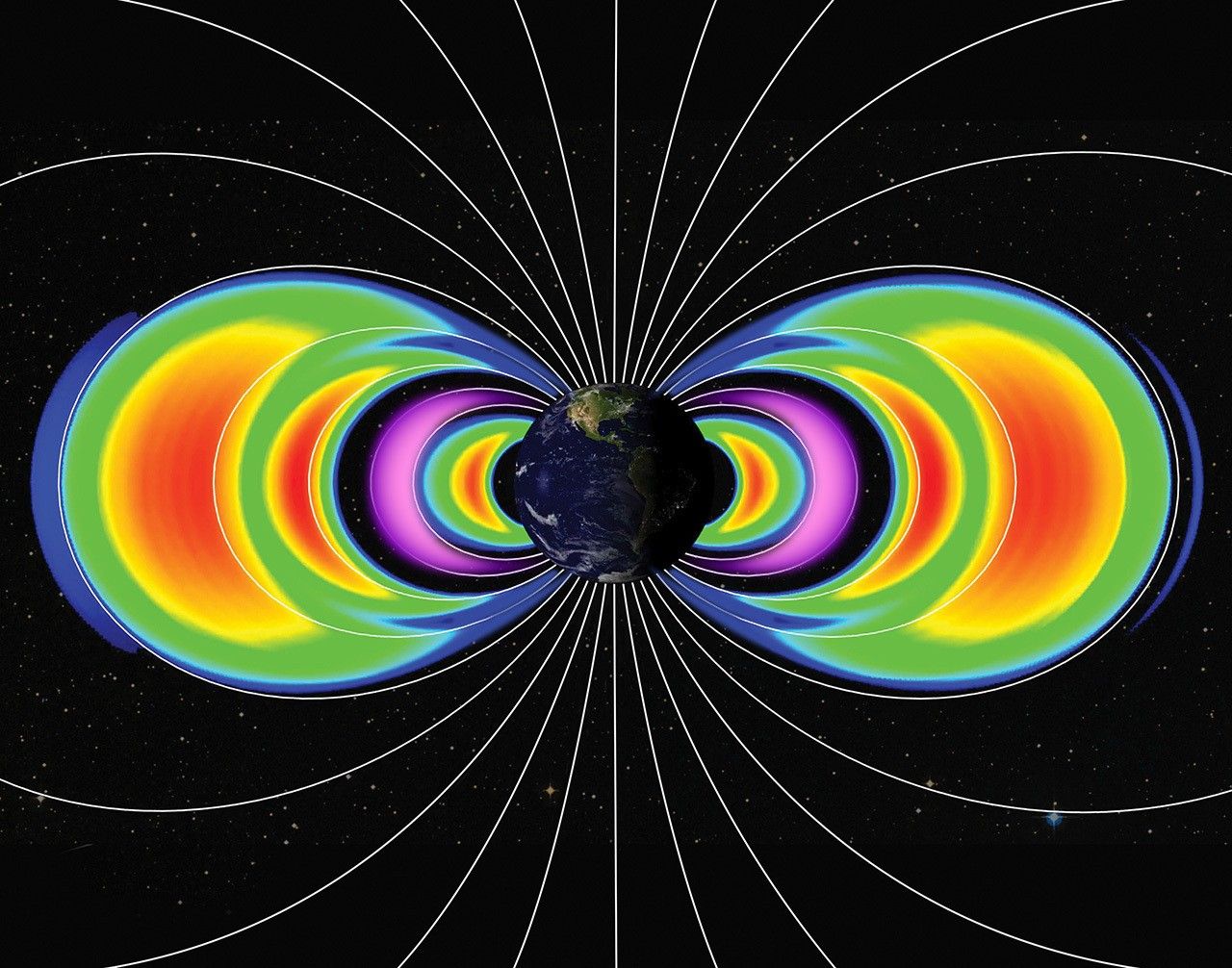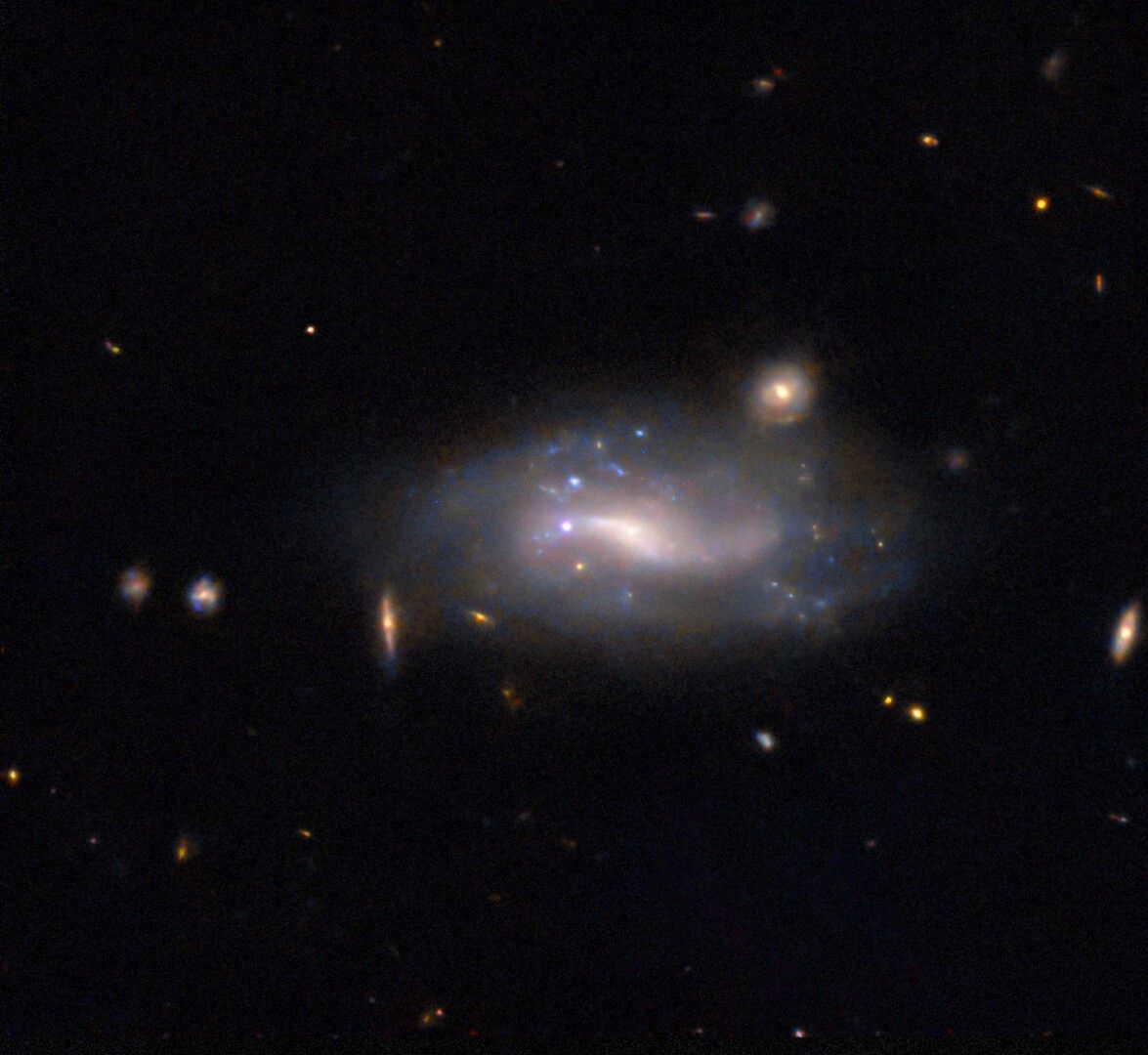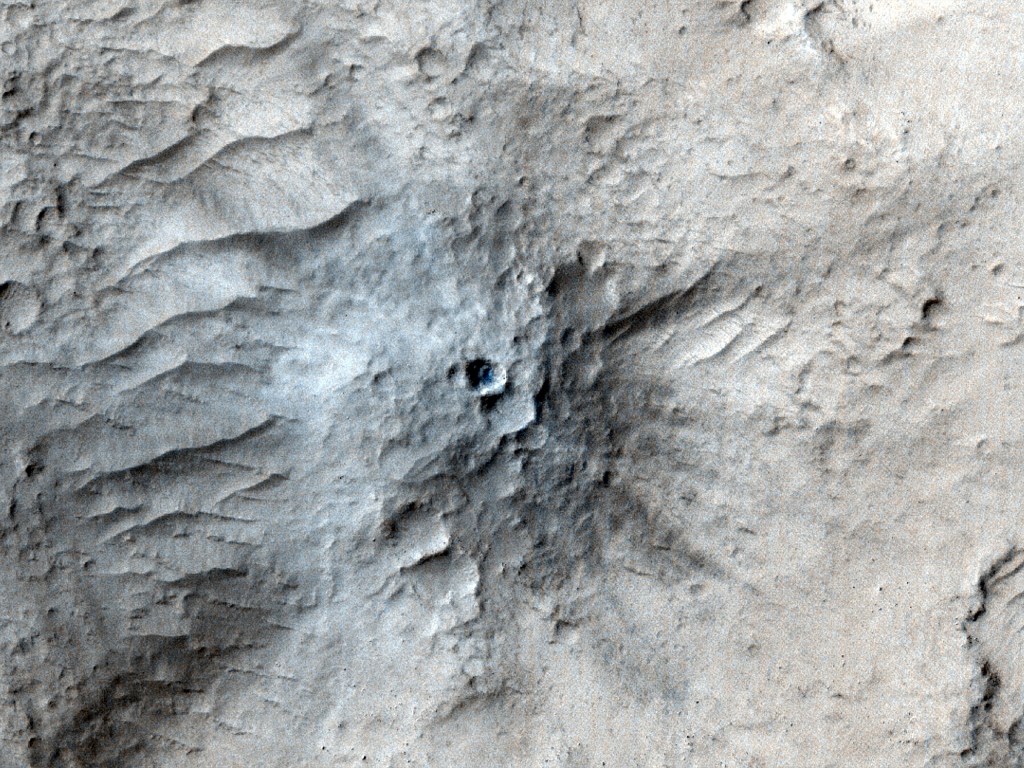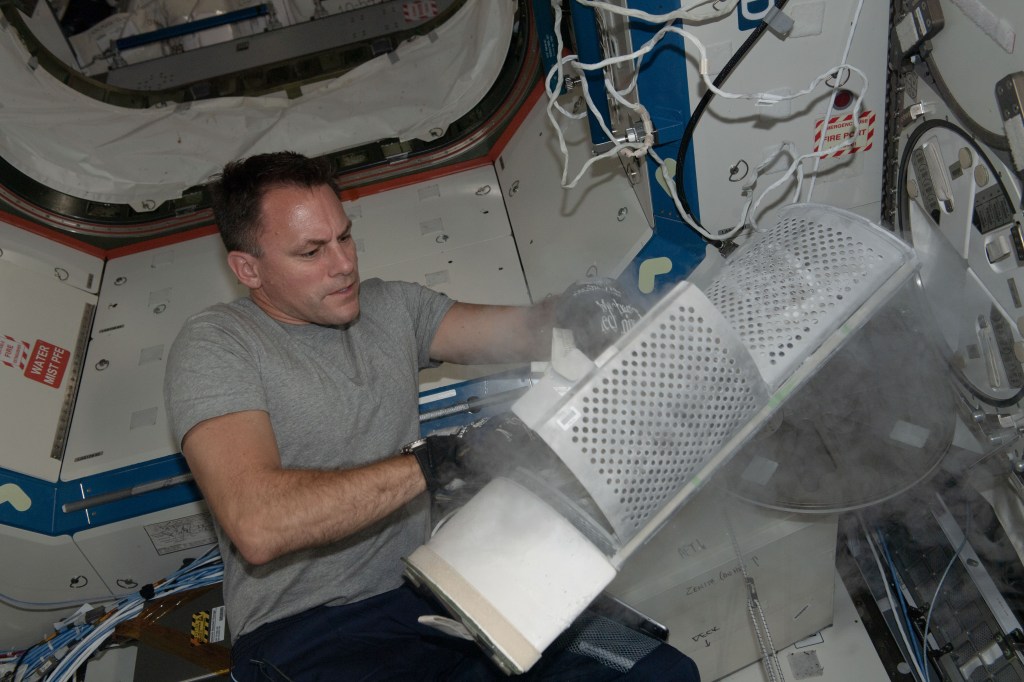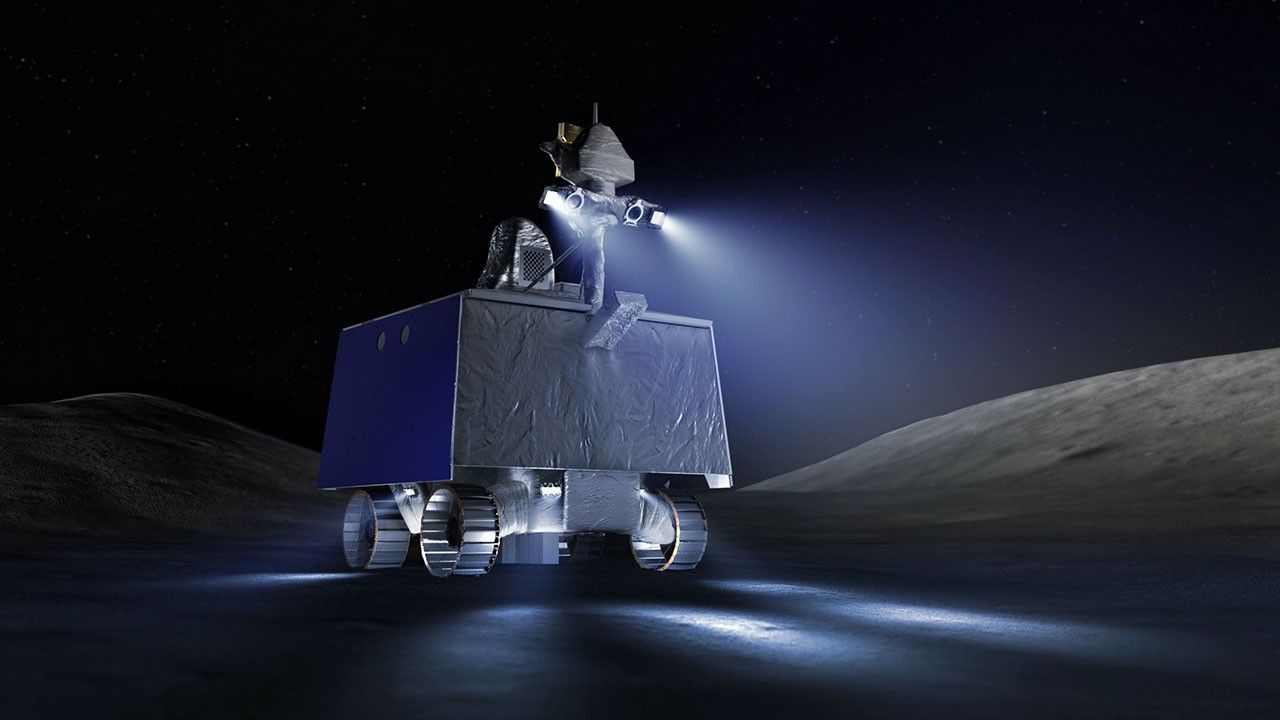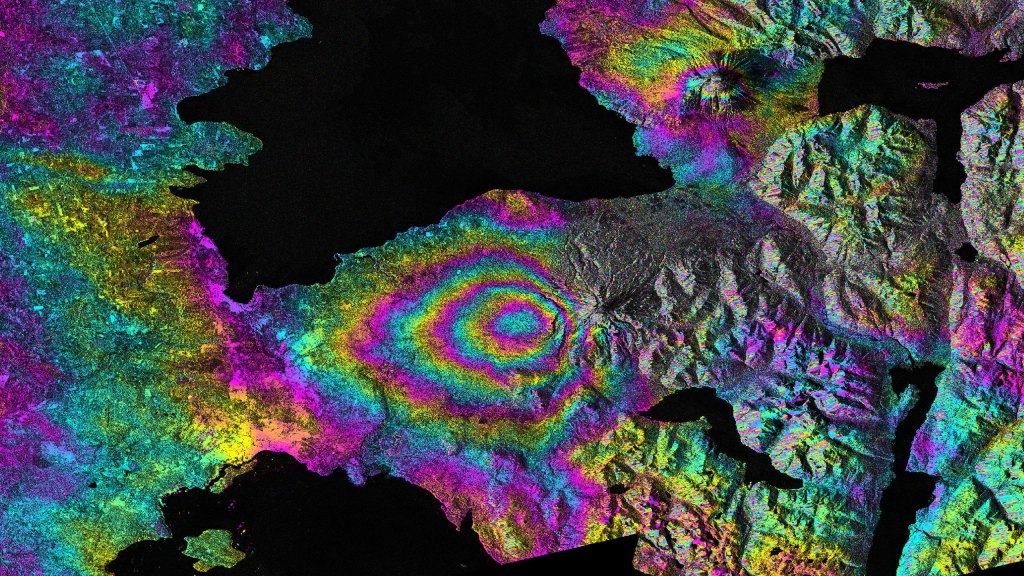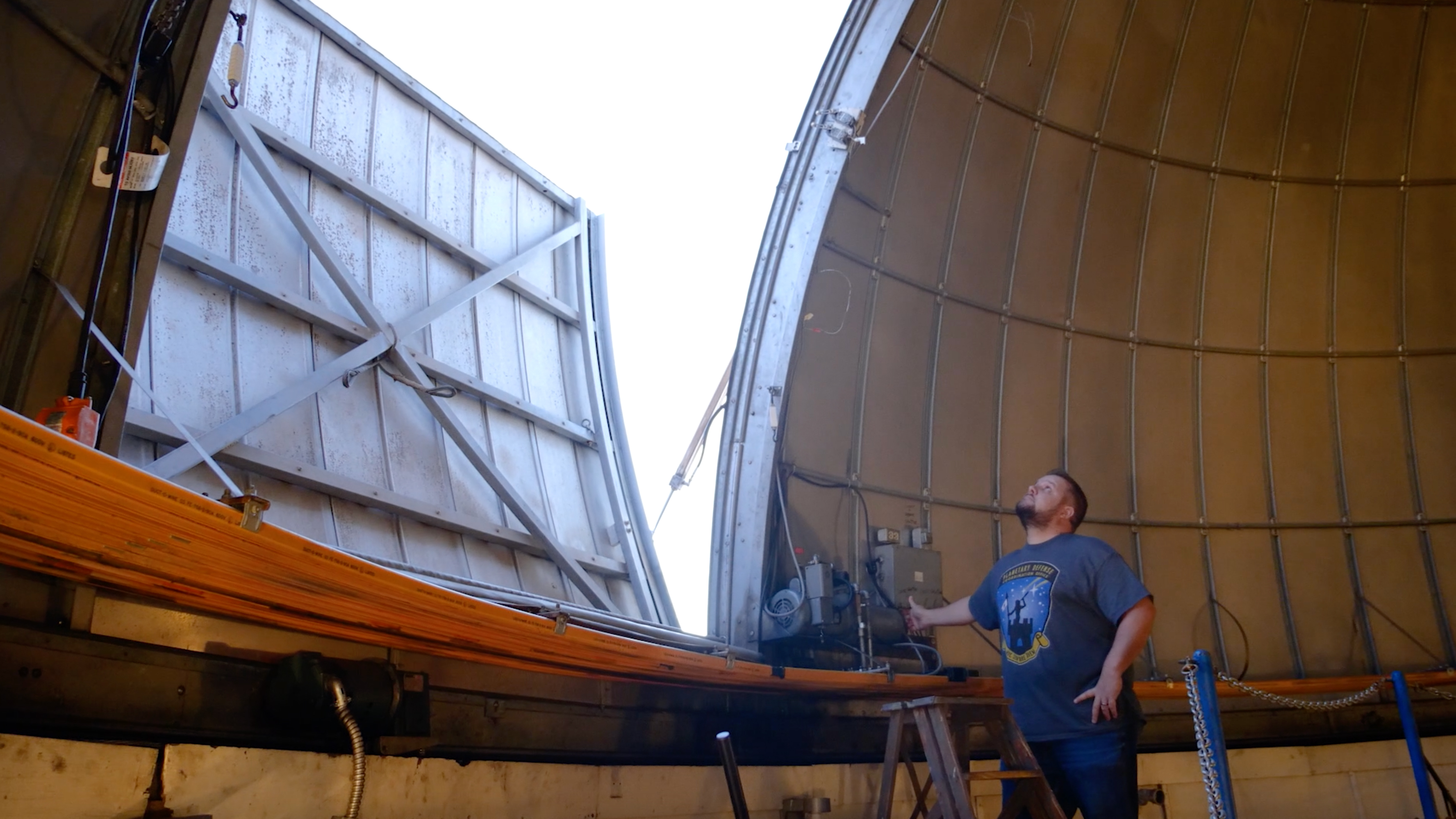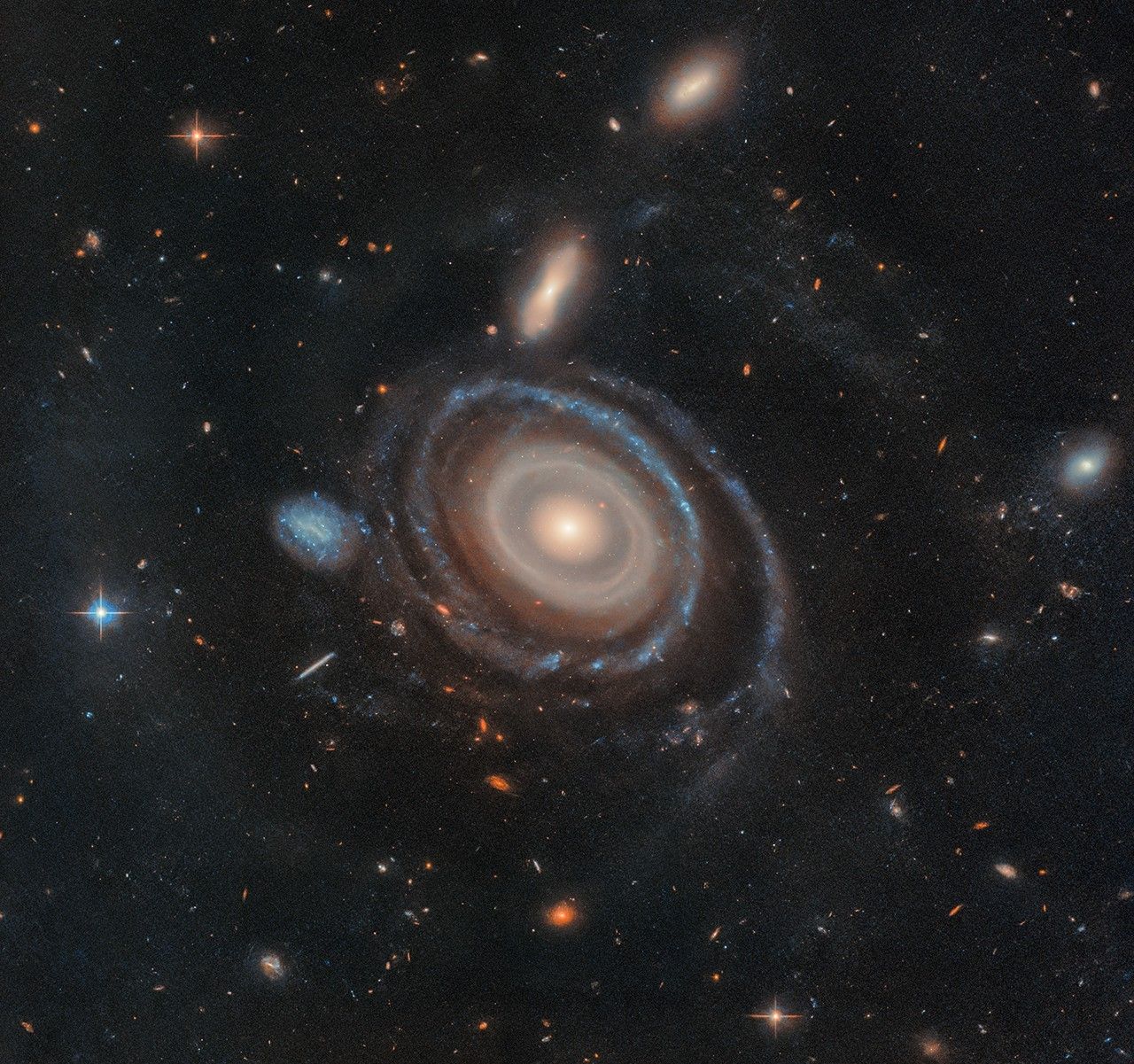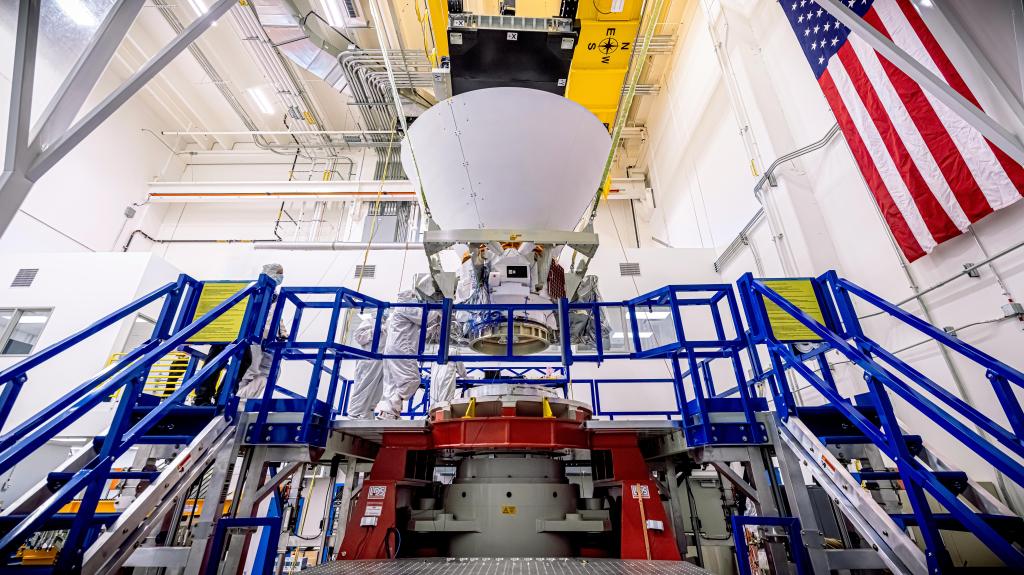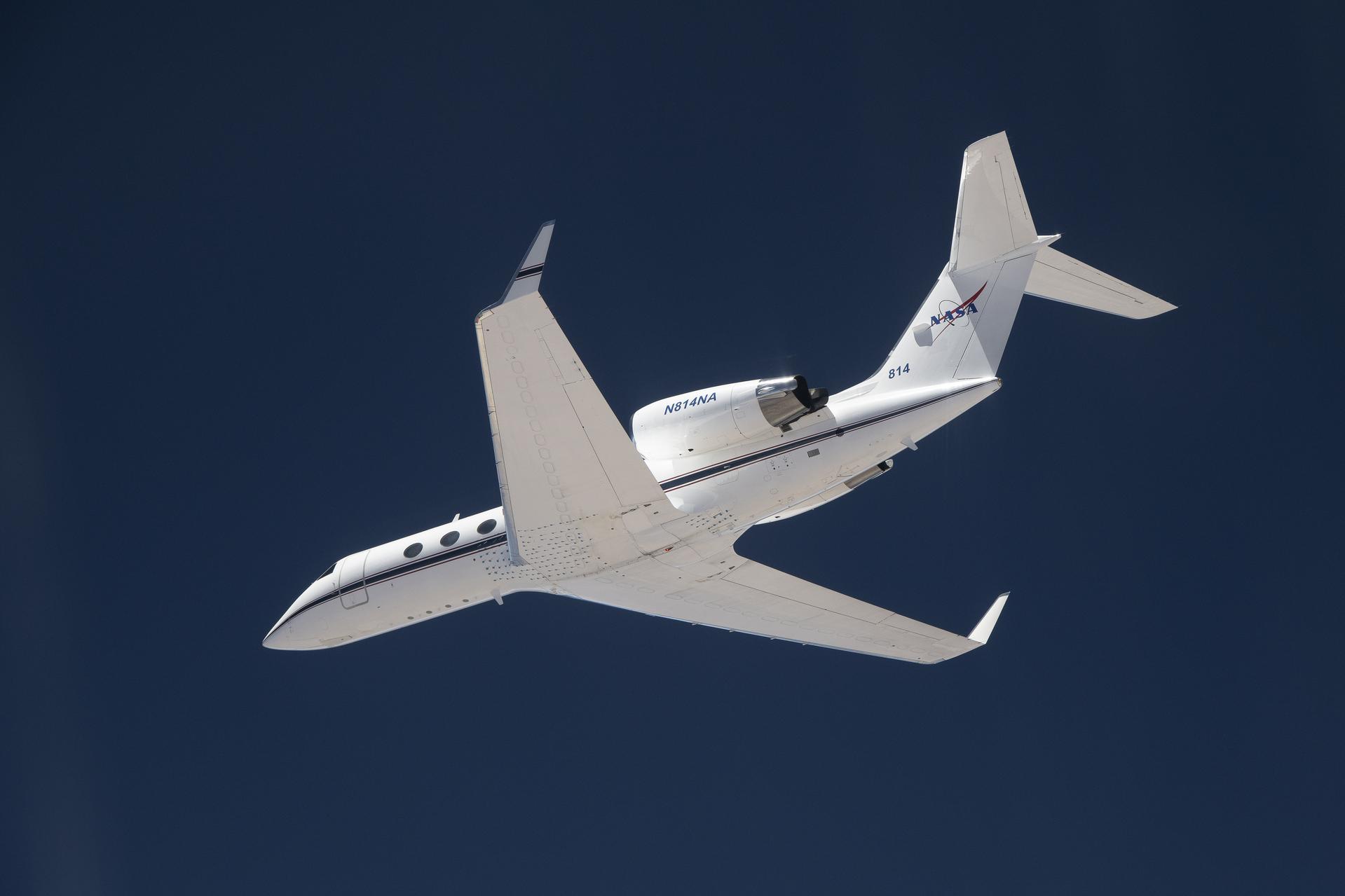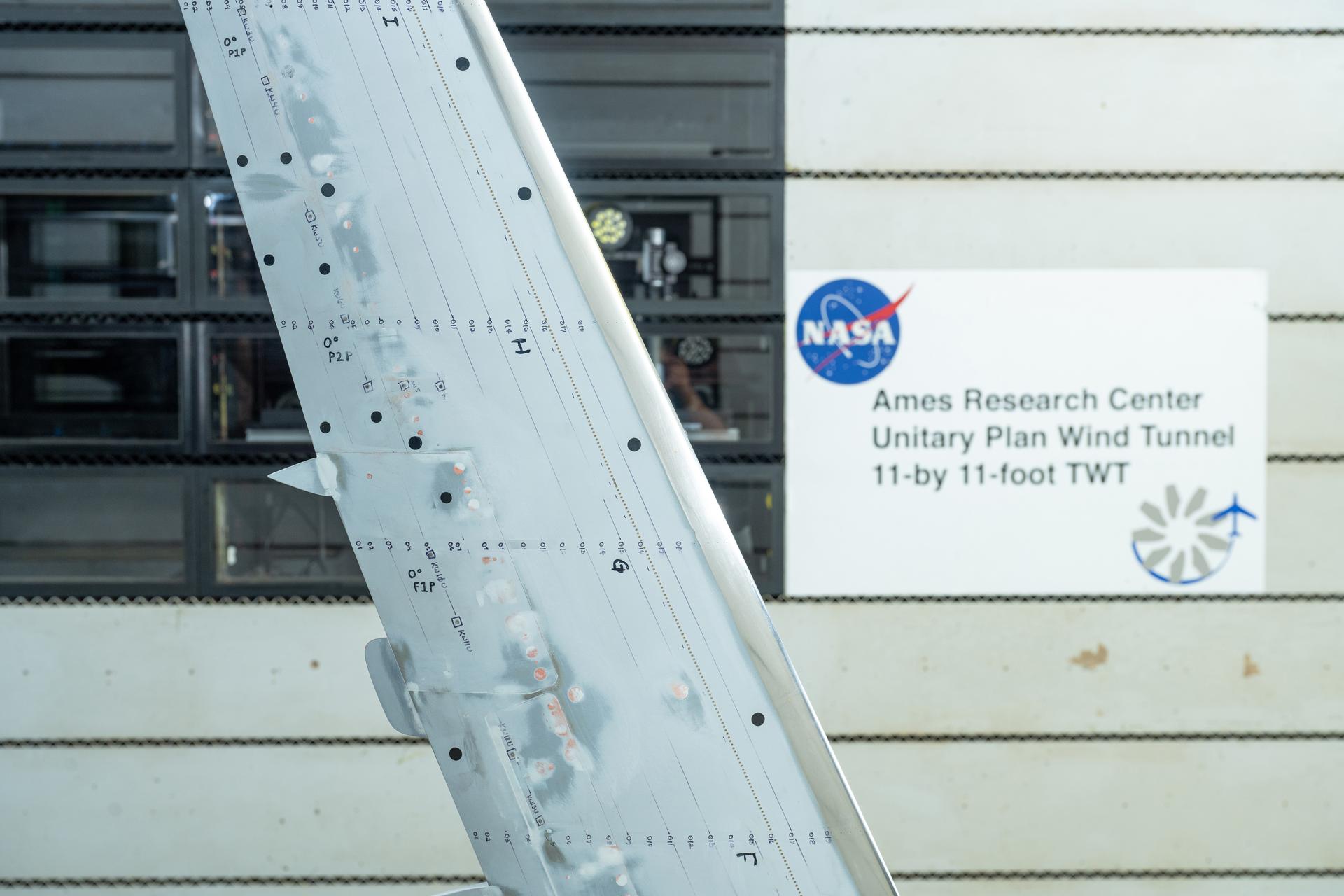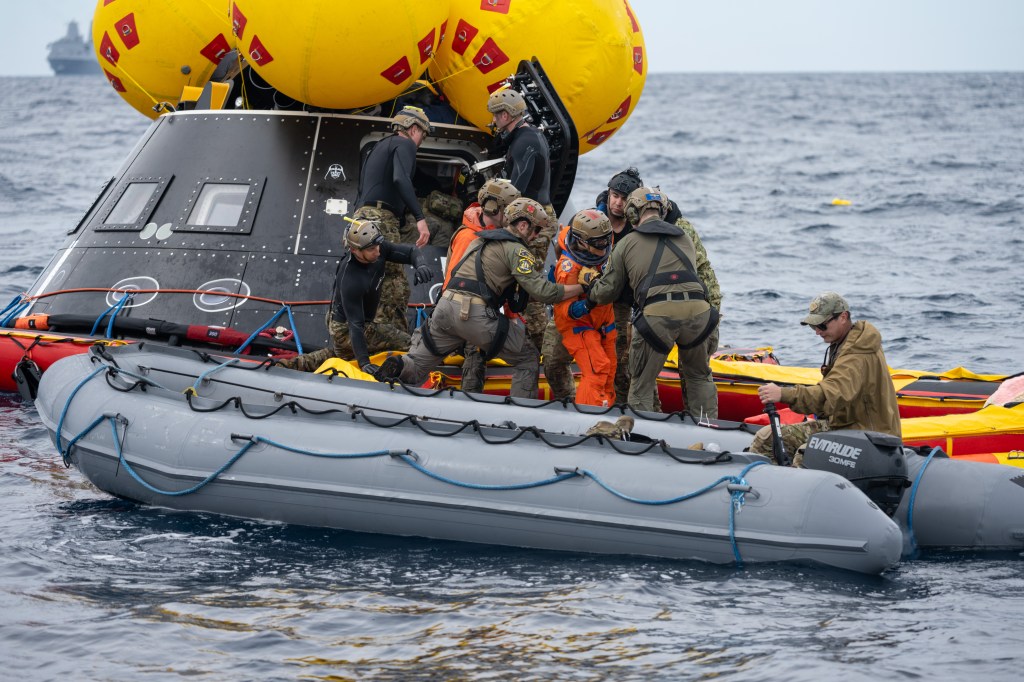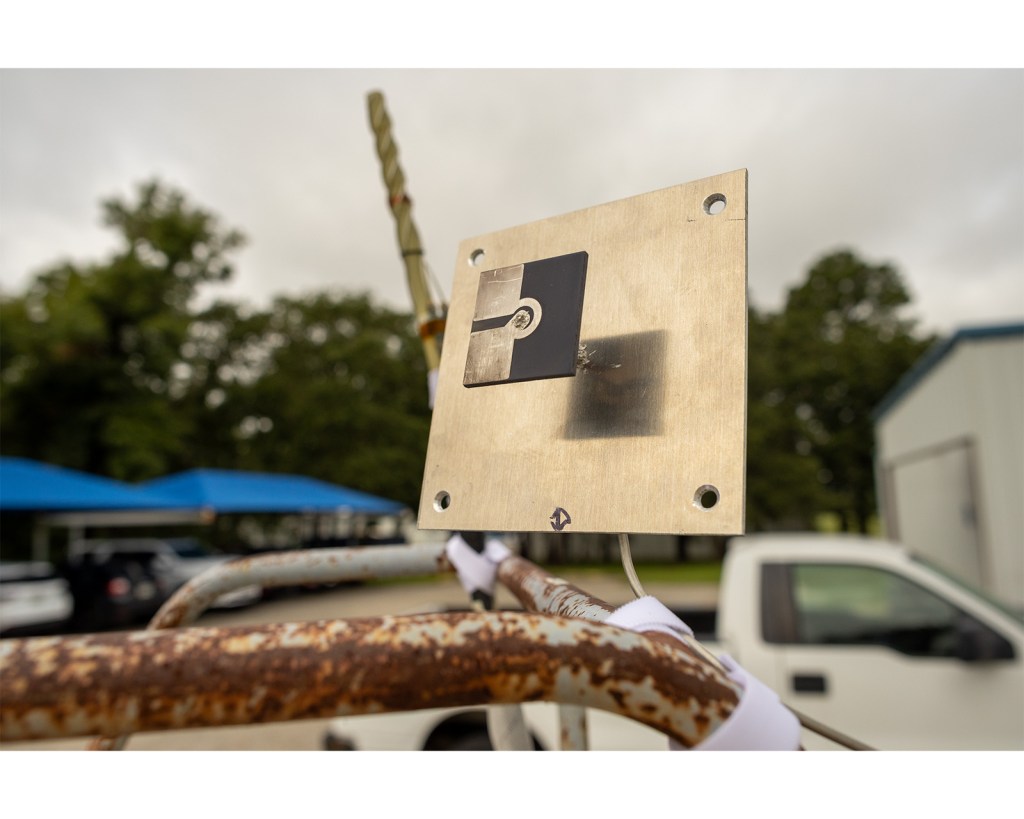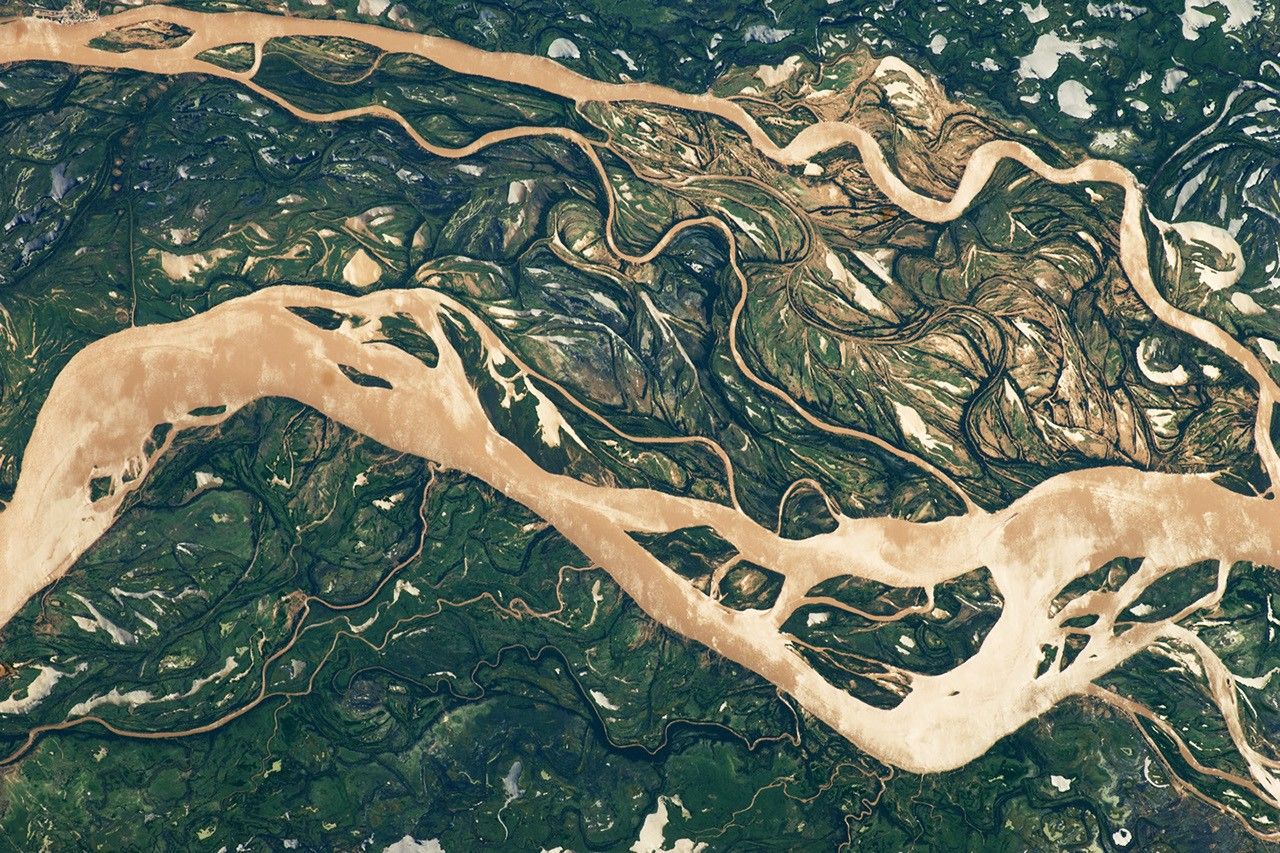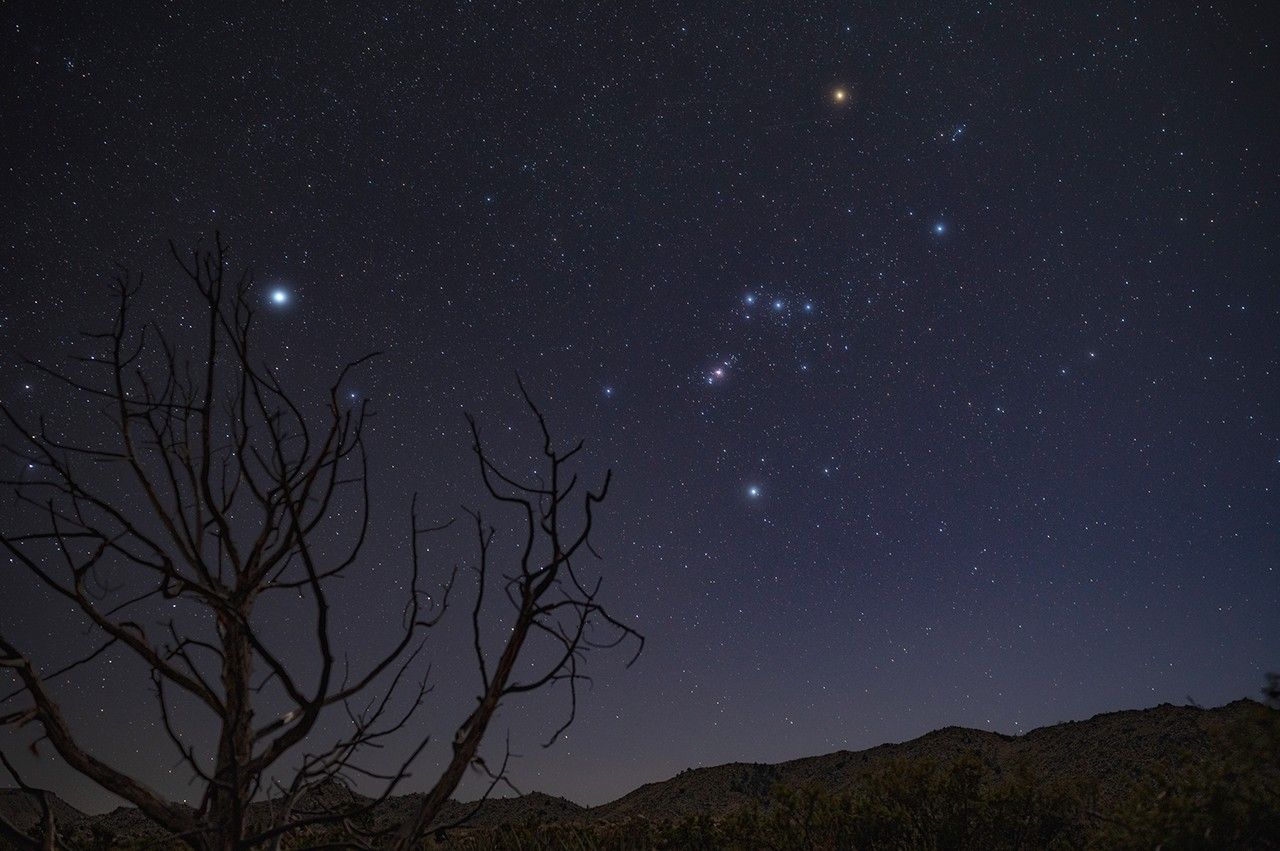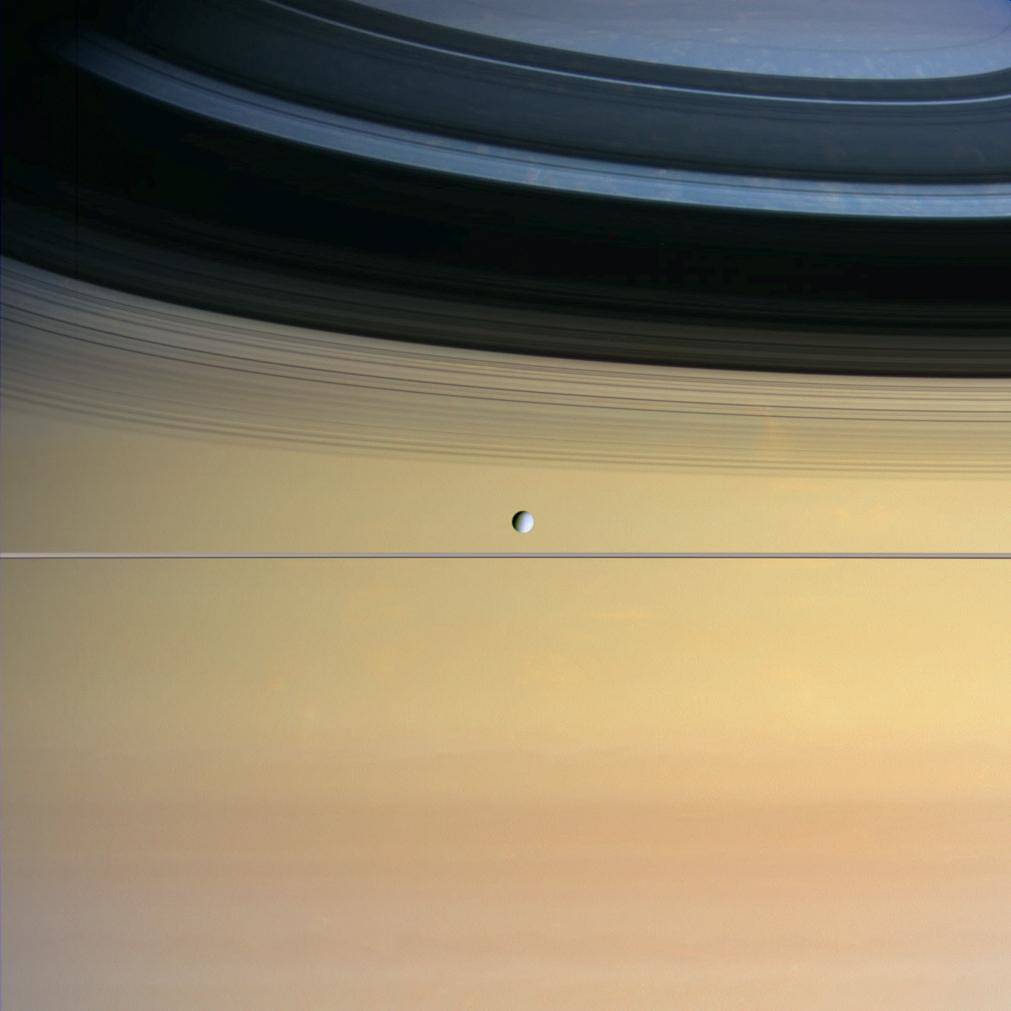
Cool and icy Dione floats in front of giant Saturn bedecked in a dazzling array of colors.
The surface of Dione, which exhibits contrasting bright and dark areas when viewed up close, appears pale in this image. It is Saturn’s multi-hued cloud bands that boldly steal the show. Discrete clouds and eddies in Saturn’s northern hemisphere can be seen within the faint shadows of the rings on the planet. Dione is 1,118 kilometers (695 miles) across.
Cassini is in a phase of its mission in which its orbit will be nearly equatorial for some time. This view was obtained from about one-third of a degree out of the ring plane.
Images taken with red, green and blue filters were used to create this natural-color view. The images were obtained with the wide-angle camera on Sept. 22, 2005, from a distance of approximately 803,000 kilometers (499,000 miles) from Dione and at a sun-Dione-spacecraft, or phase, angle of about 43 degrees. The image scale is about 48 kilometers (30 miles) per pixel.
The Cassini-Huygens mission is a cooperative project of NASA, the European Space Agency and the Italian Space Agency. The Jet Propulsion Laboratory, a division of the California Institute of Technology in Pasadena, manages the mission for NASA’s Science Mission Directorate, Washington, D.C. The Cassini orbiter and its two onboard cameras were designed, developed and assembled at JPL. The imaging operations center is based at the Space Science Institute in Boulder, Colo.
For more information about the Cassini-Huygens mission visit http://saturn.jpl.nasa.gov . The Cassini imaging team homepage is at http://ciclops.org .
Credit: NASA/JPL/Space Science Institute

